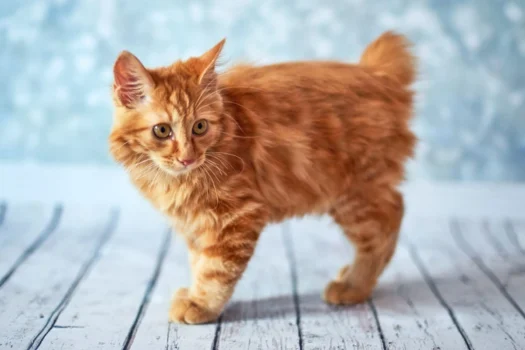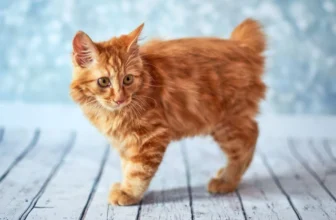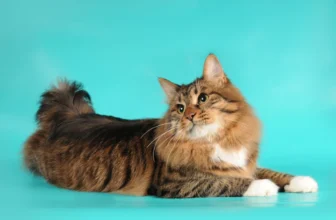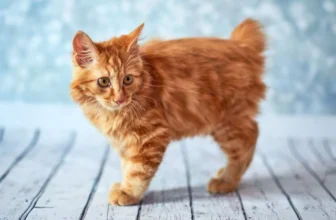As a new fur-parent to an American Bobtail kitten, you may be wondering, “What should I feed my furry little buddy?” It can be quite perplexing to understand the nutritional needs of your kitten and choose the right foods. Providing a balanced diet is crucial for the health and development of your kitten. In this article, we will guide you through the various types of food, essential nutrients, feeding schedules, and how to choose the right food for your American Bobtail kitten. By the end, you’ll have a better understanding of what your kitten needs to grow up into a healthy and happy adult. So, let’s dive into it!
Types of Food
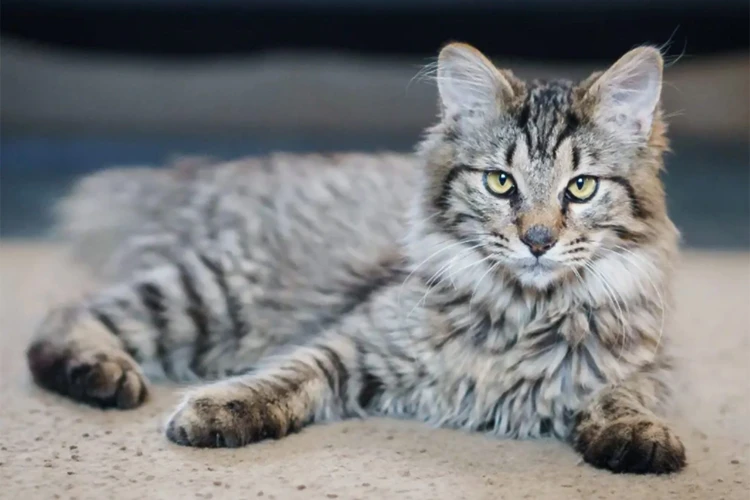
One of the most important aspects of caring for American Bobtail kittens is making sure they receive the right nutrition. Knowing about the different types of food available for kittens can help ensure that they receive a balanced diet. There are various types of food that can be consumed by kittens, including wet cat food, dry cat food, and raw food diet. Each type of food has its own benefits and drawbacks, so it’s essential to understand what each has to offer before deciding which to feed to your American Bobtail kitten. To learn more about the options available, keep reading!
Wet Cat Food
When it comes to fulfilling the dietary needs of American Bobtail kittens, wet cat food can be an excellent choice. This type of food is rich in moisture, which helps keep the kittens hydrated while also providing them with the right balance of nutrients. Wet cat food is a popular choice for cats who have trouble drinking enough water throughout the day, or for cats who are prone to urinary tract infections. Here are some key benefits of including wet cat food in your kitten’s diet:
- Moisture Content: As mentioned earlier, wet cat food has high moisture content, which is beneficial for your kitten’s hydration levels. This is especially important for an American Bobtail kitten because they are more prone to dehydration than adult cats.
- Nutritional Value: Wet cat food is packed with essential nutrients like protein, vitamins, and minerals that are crucial for the healthy growth and development of your kitten.
- Palatability: Kittens may prefer the taste and texture of wet cat food over dry food. This is because wet food has a stronger scent and flavor, which is more appealing to their sensitive taste buds.
- Improved Digestion: Wet cat food is easier for kittens to digest, and aids in better absorption of nutrients. It is also beneficial for kittens who have digestive issues like constipation or diarrhea. For more information on improving digestion, consider reading about probiotics and their role in aiding digestion in American Bobtail cats.
While wet cat food can be an excellent choice for your American Bobtail kitten, it is essential to choose a brand and type that offers complete and balanced nutrition. Be sure to read cat food labels carefully to understand what nutrients the food contains and in what amounts. You may also want to consult with a veterinarian for advice on selecting the best food for your kitten’s specific dietary needs.
Dry Cat Food
Dry cat food is a popular option for many cat owners because of its convenience and long shelf life. However, it is important to note that not all dry cat foods are created equal. It’s important to choose a high-quality dry cat food that meets the nutritional needs of your American Bobtail kitten.
Nutrient Content:
When choosing a dry cat food for your American Bobtail kitten, look for one that contains a high percentage of protein and a moderate amount of fat. American Bobtail kittens need plenty of protein to support their growth and development, and fat is necessary for energy and vitamin absorption. A good dry cat food for American Bobtail kittens should have a protein content of at least 30-35% and a fat content of at least 15-20%.
Ingredients:
Check the ingredient list carefully when selecting a dry cat food. The first ingredient should be a high-quality source of protein, such as chicken, turkey, or fish. Avoid foods that list “meat by-products” or “animal digest” as their first or second ingredient, as these are low-quality sources of protein that may not provide the nutrients your kitten needs.
It is also important to avoid dry cat foods that contain fillers such as corn or wheat. These ingredients are often used to bulk up the food and may not provide much nutritional value to your kitten. Instead, look for a food that lists whole grains like brown rice or barley as a source of carbohydrates.
Brand Selection:
There are many brands of dry cat food on the market, and it can be overwhelming to choose the right one for your American Bobtail kitten. Some top-rated brands include Hill’s Science Diet, Royal Canin, and Purina Pro Plan. Check the label carefully to ensure that the food meets the nutrient requirements for kittens, as some brands may be geared towards adult cats.
Feeding Tips:
When feeding your American Bobtail kitten dry cat food, make sure that they have access to plenty of fresh water at all times. Dry cat food has a lower water content than wet food, so it’s important to encourage your kitten to drink water. You can also supplement their diet with wet cat food to add moisture and variety to their meals.
It’s important to note that dry cat food should not be the only source of nutrition for your kitten. In addition to dry food, offer your kitten wet food and fresh, healthy treats such as cooked chicken or tuna. A balanced diet is crucial for your American Bobtail kitten’s health and development.
If you want to learn more about a balanced diet for American Bobtail cats, check out our article on balanced diet for American Bobtail cats. And don’t forget to keep an eye out for any signs of health issues in your kitten. Learn about common health issues in American Bobtail cats by reading our article on American Bobtail cats health issues.
Raw Food Diet
A raw food diet for American Bobtail kittens is a popular and controversial feeding approach. Instead of processed or cooked food, kittens are fed raw meat, organs, and bones. Supporters of this type of diet claim that it mimics the diet their wild ancestors had and that it can improve the kitten’s coat, reduce allergies, and promote overall health.
Pros:
A raw food diet provides nutritional benefits that processed foods don’t. Because raw food is not cooked, it retains more of its nutritional value, which is especially important for growing American Bobtail kittens. Feeding your kitten raw food can provide them with a source of high-quality protein and fat, essential for bone and muscle growth. Additionally, some kittens with allergies or sensitivities to processed food may benefit from the simple, natural ingredients found in a raw food diet.
Cons:
However, feeding your American Bobtail kitten a raw food diet can also be risky. Raw food can contain harmful bacteria, such as salmonella and E.coli, which can make your kitten and your family sick. Additionally, a raw food diet can be more challenging to prepare and store than traditional canned or dry food. It is essential to do extensive research and take all necessary precautions before feeding your kitten a raw food diet.
Important Considerations:
Before starting your kitten on a raw food diet, consult with a veterinarian. A vet can assess whether the diet will meet all of the kitten’s nutritional needs and advise on any necessary supplements. It is also critical to ensure that the raw food you’re feeding is of high quality and doesn’t contain any harmful additives or preservatives. To reduce the risk of bacterial contamination, store raw food separately from human food and use clean utensils and preparation surfaces.
The table below summarizes the pros and cons of a raw food diet for American Bobtail kittens:
| Pros | Cons |
|---|---|
| Retains more nutritional value | Can contain harmful bacteria |
| Provides high-quality protein and fat | More challenging to prepare and store |
| Simpler, natural ingredients | May require additional supplements |
A raw food diet can be a suitable feeding option for American Bobtail kittens, but it is essential to weigh the pros and cons carefully. Consult with a vet to ensure the diet meets your kitten’s nutritional needs and provide proper care to avoid contamination.
Important Nutrients
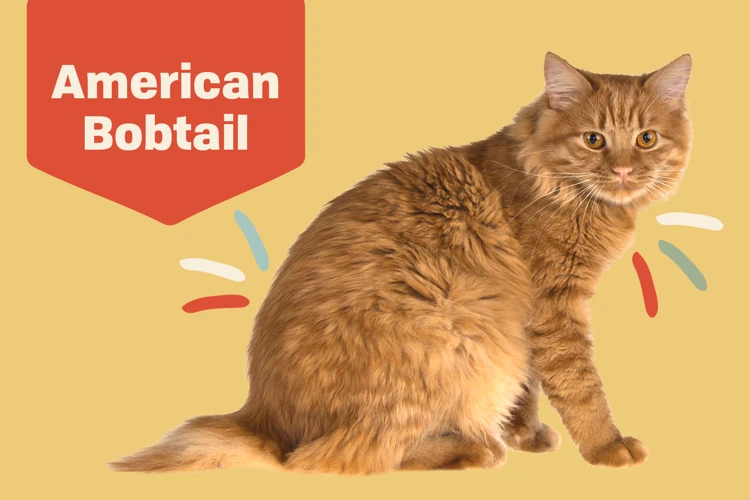
As with all growing kittens, the nutritional needs of American Bobtail kittens are vital for their overall health and development. During this phase of their lives, it’s important to select food that contains an assortment of essential nutrients. These nutrients play integral roles in their growth and overall well-being. It’s important to understand each of these nutrients and how they support your kitten’s growth, so let’s dive into the various nutrients that are essential for your American Bobtail kitten’s health.
Protein
One of the most important nutrients that American Bobtail kittens need to grow and develop properly is protein. Protein provides the building blocks for muscle, tissues, organs, and the immune system. Without enough protein in their diet, kittens may experience stunted growth and development, weakened immune systems, and even developmental abnormalities.
To ensure that your American Bobtail kitten is getting enough protein, look for cat food that includes high-quality animal proteins, such as chicken, fish, and beef. These proteins contain all of the essential amino acids that your kitten needs to thrive. You can also supplement your kitten’s diet with small amounts of cooked eggs, lean meats, and fish.
It’s important to remember that kittens have higher protein needs than adult cats, and should be fed accordingly. As a general rule, kittens should receive 30-40% of their daily caloric intake from protein. Consult with a veterinarian to determine the appropriate protein levels for your kitten based on their age, weight, and activity level.
Benefits of Protein:
– Builds and maintains muscle
– Provides energy
– Supports immune system function
– Helps with wound healing
Sources of Protein:
– Chicken
– Fish
– Beef
– Eggs (cooked)
– Lean meats
– Fish-based cat food
When selecting cat food for your American Bobtail kitten, look for options that list a high-quality protein source as the first ingredient. Avoid foods that contain fillers or by-products, as these may not provide adequate protein for your kitten’s needs. Additionally, make sure that any additional protein sources, such as fish, are responsibly sourced and free from toxins and contaminants.
Protein is a crucial nutrient for the growth, development, and overall health of American Bobtail kittens. Make sure that your kitten is receiving a diet rich in high-quality animal proteins, and consult with a veterinarian to determine the appropriate protein levels for your kitten’s needs.
Fat
Fat is an essential nutrient for the healthy development of American Bobtail kittens. It is a concentrated source of energy that helps maintain their fur coat and supports their immune system. However, not all fats are created equal. Some types of fats can be harmful if consumed in excess, so it is important to choose the right type of fat for your kitten.
Here are some of the most important types of fat to consider:
- Omega-3 Fatty Acids: These are essential fats that cannot be produced by the kitten’s body, so they must be obtained through diet. Omega-3s are important for brain development, vision, and can even help reduce inflammation. Common sources of omega-3s include fish oil, flaxseed, and chia seeds.
- Saturated Fat: This type of fat is found in animal products and can increase the risk of heart disease and other health problems if consumed in excess. It is important to choose kitten food with a lower amount of saturated fat.
- Monounsaturated and Polyunsaturated Fat: These types of fats are considered healthy and can help reduce the risk of heart disease. They are found in foods like avocados, nuts, and seeds.
- Trans Fats: These fats are often found in processed foods like baked goods and fried foods. They can increase the risk of heart disease and should be avoided.
It is important to look at the fat content of your kitten’s food and choose a brand that has a healthy balance of the different types of fats. A high-quality kitten food should have at least 30% protein and 20% fat. Be sure to read the label carefully and avoid any brands with high levels of saturated or trans fats.
Remember to keep in mind that every kitten’s nutritional needs are different, and it’s always best to consult with a veterinarian for advice on choosing the right food for your American Bobtail kitten.
Carbohydrates
Carbohydrates
Carbohydrates are an important macronutrient for American Bobtail kittens. They are a key source of energy for their growing bodies. While high-carb diets are not ideal for cats, they do require some carbohydrates in their diet. It’s important to choose the right types of carbohydrates for your kitten.
Good sources of carbohydrates for kittens include:
- Fruits and vegetables such as carrots, sweet potatoes, and peas
- Whole grains like brown rice and barley
- Lentils and beans
It’s important to note that some commercial kitten foods can contain a lot of fillers and empty carbs. These types of carbohydrates have little nutritional value and can lead to weight gain and other health problems. To ensure you are providing your kitten with the best nutrition, check the labels of any commercial kitten food you are considering and look for high-quality, whole food ingredients.
Vitamins and Minerals
As important as protein and fat intake are for American Bobtail kittens, you also need to ensure they are getting the right vitamins and minerals to support their growth and overall health. Here are some essential nutrients your kitten needs:
- Vitamin A: crucial for the health of your kitten’s eyes, coat, and skin. This vitamin can be found in liver, eggs, and fish oil.
- B vitamins: B vitamins play a vital role in maintaining healthy skin and coat, as well as in supporting the nervous system. These vitamins can be found in meats like chicken, turkey, and fish.
- Vitamin D: essential for calcium absorption and bone growth. Vitamin D can be found in fatty fish, egg yolks, and liver.
- Vitamin E: a powerful antioxidant that supports immune function and skin health. Vitamin E can be found in nuts, seeds, and fish oil.
- Vitamin K: important for blood clotting and bone health. Vitamin K can be found in liver and dark, leafy greens.
- Calcium: a mineral that is essential for bone and teeth growth. Calcium can be found in dairy products, fish, and leafy greens.
- Iron: crucial for red blood cell production and circulation. Iron can be found in meat, fish, and poultry.
- Zinc: important for immune function, skin health, and wound healing. Zinc can be found in meat, fish, and legumes.
Keep in mind that while these nutrients are essential to a kitten’s development, it’s important not to over-supplement with vitamins or minerals. Too much of one nutrient can result in toxicity and adverse health effects. Always consult with a veterinarian before introducing any supplements into your kitten’s diet.
Water
Water is an essential nutrient for American Bobtail kittens, just as it is for all living beings. Keeping your kitten hydrated ensures their body functions properly and helps prevent health issues. Kittens have a higher requirement for water than adult cats due to their smaller size and higher activity level. Some key points to consider when it comes to your kitten’s water consumption include:
- Make sure your kitten always has access to fresh, clean water. This is especially important when feeding dry food, which tends to contain less moisture than wet food. Change the water frequently throughout the day, and clean your kitten’s water bowl regularly to prevent the growth of harmful bacteria.
- Monitor your kitten’s water intake. A good rule of thumb is that kittens need about an ounce of water per pound of body weight each day. You can monitor your kitten’s water intake by measuring the amount of water you give them each day and noting how much is left at the end of the day.
- Consider feeding wet food to increase your kitten’s water intake. Wet cat food contains a higher percentage of moisture than dry food, which can help keep your kitten hydrated. You can also add water to your kitten’s dry food to help increase their water intake.
- Be aware of the symptoms of dehydration. If your kitten is not getting enough water, they may become dehydrated. Common symptoms of dehydration include lethargy, dry mouth and nose, sunken eyes, and reduced skin elasticity. If you suspect your kitten is dehydrated, contact your veterinarian right away.
- Consider using a water fountain. Some kittens prefer to drink from moving water sources, such as a pet water fountain. This can help encourage your kitten to drink more water and stay hydrated.
Make sure to provide your American Bobtail kitten with plenty of fresh, clean water every day, and monitor their water intake to ensure they are getting enough. By paying attention to their water consumption and providing access to adequate water sources, you can help keep your kitten healthy and happy.
Feeding Schedule
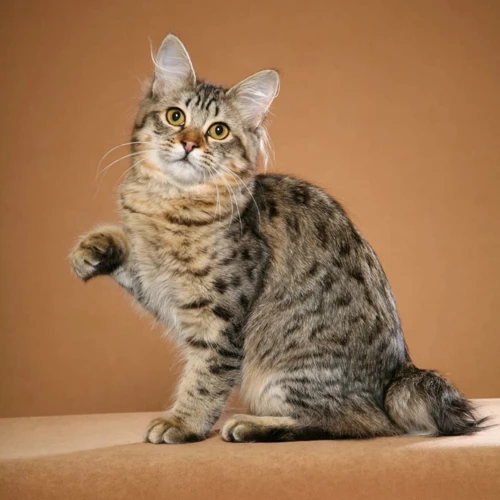
Feeding your American Bobtail kitten on a regular schedule is crucial for their growth and development. A consistent feeding routine helps to establish healthy eating habits and prevents overeating. Consistency also aids in digestion and reduces the likelihood of tummy upsets.
Age-Dependent Feeding Schedule: The feeding schedule for your American Bobtail kitten will vary depending on their age. Kittens under two months old need to eat every 2-3 hours. At 2-3 months, they can be fed four times a day. Between 3-6 months, feeding can be reduced to three times a day. After six months, two times a day feeding is sufficient.
Portion Control: It’s essential to provide your American Bobtail with appropriate portion sizes, taking into account their age, weight, and activity level. Overfeeding can lead to unnecessary weight gain, obesity, and other health problems.
Water: Your kitten should have access to clean drinking water at all times. Keep an eye on their water bowl and refill it as needed.
Treats: Treats should be given in moderation and not be more than 10% of your kitten’s daily caloric intake. Overfeeding treats can result in weight gain, diarrhea, and other health issues.
Consistency: Feed your American Bobtail kitten in a designated spot every day at the same time to develop healthy eating habits. Also, avoid sudden food changes as it may cause digestive problems. Instead, transition to new food gradually over at least two weeks.
By following a consistent feeding schedule and providing appropriate portions, your American Bobtail kitten will be well-nourished, healthy, and happy. Remember that proper nutrition is essential for their growth and development. If you have any doubts or concerns about your kitten’s diet, consult your veterinarian.
Choosing the Right Food
Choosing the best food for your American Bobtail kitten can seem overwhelming with so many options available in the market. However, proper nutrition is crucial to your kitten’s health and well-being, and it’s essential to understand how to choose the right food for your furry friend. In this section, we will go over some crucial factors you need to consider when selecting high-quality food for your kitten, such as reputable brands and labels, food allergies, and consulting with a vet. By the end, you’ll have a better understanding of what to feed your kitten and how to choose the right food that suits their specific needs. Let’s dive in!
Brands and Labels
When it comes to choosing the right food for your American Bobtail kitten, it’s important to pay attention to the brands and labels on the food. Here are some things to keep in mind:
| Ingredient List | The ingredient list should be the first thing you look at when choosing a brand of kitten food. Look for high-quality protein sources like chicken, turkey, or fish as the first ingredient. Avoid brands that list fillers like corn or wheat as the first ingredient. |
|---|---|
| Guaranteed Analysis | The guaranteed analysis on the label tells you the minimum amount of protein and fat, and the maximum amount of fiber and moisture in the food. Look for brands that have high protein and low fiber content. Also, keep in mind that kittens need more protein and fat than adult cats, so choose a formula specifically designed for kittens. |
| Preservatives and Additives | Avoid brands that contain artificial preservatives and additives like BHA, BHT, or ethoxyquin. Instead, look for brands that use natural preservatives like tocopherols (vitamin E) or rosemary extract. |
| Organic and Non-GMO | If you prefer organic or non-GMO products, look for brands that are certified as such. These brands are free from synthetic pesticides, fertilizers, and genetically modified ingredients, which can be beneficial for your kitten’s health. |
Remember, every kitten is unique and may have different dietary needs. It’s important to consult with your veterinarian to determine the best brand and formula for your American Bobtail kitten.
Food Allergies
As with humans, food allergies can also be a concern for American Bobtail kittens. If your kitten experiences any kind of gastrointestinal distress or shows signs of an adverse reaction after eating certain foods, it may be a sign of a food allergy. Some common signs include vomiting, diarrhea, itching or excessive grooming.
To ensure that your pet is not experiencing any discomfort, look for hypoallergenic cat foods or foods that have limited ingredients. These foods are designed to reduce the likelihood of allergic reactions and typically exclude common allergens such as grains, dairy, or certain meat proteins.
Here are some tips to help prevent and manage food allergies in your American Bobtail kitten:
- Gradually introduce new foods to your kitten’s diet, and take note of any adverse reactions
- Read food labels carefully and avoid foods that contain ingredients that your kitten is allergic to
- Avoid feeding your kitten table scraps or human food, as these can contain ingredients that could trigger an allergic reaction
- Consult with your veterinarian if you suspect that your kitten may have a food allergy or intolerance
By being attentive to your kitten’s diet and being mindful of any potential allergens, you can help to ensure that they stay healthy and happy. Don’t hesitate to consult with your vet if you have any concerns or questions about your kitten’s nutritional needs.
Consulting with a Vet
As a responsible kitten owner, it’s essential to consult with a vet when choosing the right food for your American Bobtail kitten. A vet can help you determine the specific nutritional needs of your kitten and recommend the best diets to keep them healthy and happy. Here are some reasons why consulting with a vet is crucial:
Expertise: Vets are trained professionals with knowledge on kitten nutrition. They can provide insights on the right type of food to feed your kitten, taking into account their age, breed, and medical history.
Health Concerns: Kittens may have specific health concerns that need to be addressed with specific dietary requirements. A vet can help identify any issues and provide you with guidance on the appropriate food choices to maintain their health.
Allergies: Just like humans, some kittens may have food allergies or intolerances that need to be managed with specialized diets. A vet can help identify these and advise you on appropriate dietary choices.
Breed Characteristics: Since each breed of kitten is unique in their nutritional requirements, it’s always best to consult with a vet, especially when it comes to the American Bobtail breed. These kittens have a reputation for needing a high protein diet to maintain their muscular body composition.
Age Appropriate Diet: As your kitten grows, their nutritional needs will change. A vet can help you establish an appropriate feeding schedule and choose the right type of food needed for each stage of their life.
It is best to consult with your vet annually to ensure your kitten’s diet is meeting their specific needs, especially when their health or appetite changes. Your vet can guide you on making necessary changes to your kitten’s diet while ensuring they are getting the required nutrients to maintain a healthy growing stage.
Conclusion
After exploring the nutritional needs of American Bobtail kittens, it is clear that a balanced and nutrient-rich diet is crucial for their overall health and development. As caretakers of these adorable creatures, it is our responsibility to provide them with the best nutrition possible.
Choosing the right type of food is the first step in ensuring that our kittens are receiving the proper nutrients. Wet cat food is an excellent option for those who want to provide their kitten with higher moisture content, while dry cat food provides a longer shelf life and convenience. A raw food diet can also be beneficial, as it offers a natural source of nutrients and protein.
Understanding the important nutrients involved in a Bobtail kitten’s diet is also essential. Protein, fat, carbohydrates, vitamins, minerals, and water all play critical roles in their development and overall well-being. Ensuring that they are receiving adequate amounts of each nutrient is crucial for their growth and long-term health.
Feeding schedules should also be taken into account, as they can affect a kitten’s digestive system and overall health. Providing frequent, small meals throughout the day can help keep their metabolism stable and prevent overeating.
Choosing the right food can be a daunting task, but by paying attention to brands and labels, food allergies, and consulting with a vet, we can make informed decisions and ensure that our Bobtail kittens are receiving the best food possible.
In conclusion, a well-balanced and nutrient-rich diet is key to ensuring the health and happiness of our American Bobtail kittens. By taking the time to understand their nutritional needs and making informed decisions, we can provide them with the foundation they need to thrive and live a long and happy life.
Frequently Asked Questions
1. Can American Bobtail Kittens be fed a vegetarian diet?
No. American Bobtail Kittens, like all cats, are obligate carnivores and require animal-based proteins to meet their nutritional needs.
2. How often should I feed my American Bobtail Kitten?
It’s best to feed your American Bobtail Kitten small meals throughout the day, about three to four times a day.
3. What is the difference between wet and dry cat food?
Wet cat food has a higher moisture content than dry cat food, which can help your kitten stay hydrated. Dry cat food, on the other hand, is more convenient and can help keep your kitten’s teeth clean.
4. What type of protein is best for American Bobtail Kittens?
Animal-based proteins, such as chicken, turkey, and fish, are best for American Bobtail Kittens as they contain all the essential amino acids your kitten needs to grow and develop.
5. How much fat should be in my kitten’s diet?
Generally, kitten food should contain around 20-25% fat, which helps support their growth and development.
6. Can American Bobtail Kittens eat table scraps?
No. Table scraps can upset your kitten’s stomach and may not provide the proper nutrition they need.
7. What are some common food allergies in American Bobtail Kittens?
Common food allergens in American Bobtail Kittens include beef, dairy, and grains. If you notice your kitten experiencing symptoms such as vomiting or diarrhea after eating, they may have a food allergy.
8. Is it necessary to consult with a vet before changing my kitten’s diet?
It is always a good idea to consult with your veterinarian before making any significant changes to your kitten’s diet to ensure that they are getting all the necessary nutrients.
9. Is a raw food diet recommended for American Bobtail Kittens?
A raw food diet can be risky for American Bobtail Kittens, as it may not provide all of the necessary nutrients they need. Consult with your vet before considering a raw food diet for your kitten.
10. When should I switch my kitten to adult cat food?
Kittens should typically be fed kitten food until they are around 12 months old, at which point they can transition to adult cat food.

